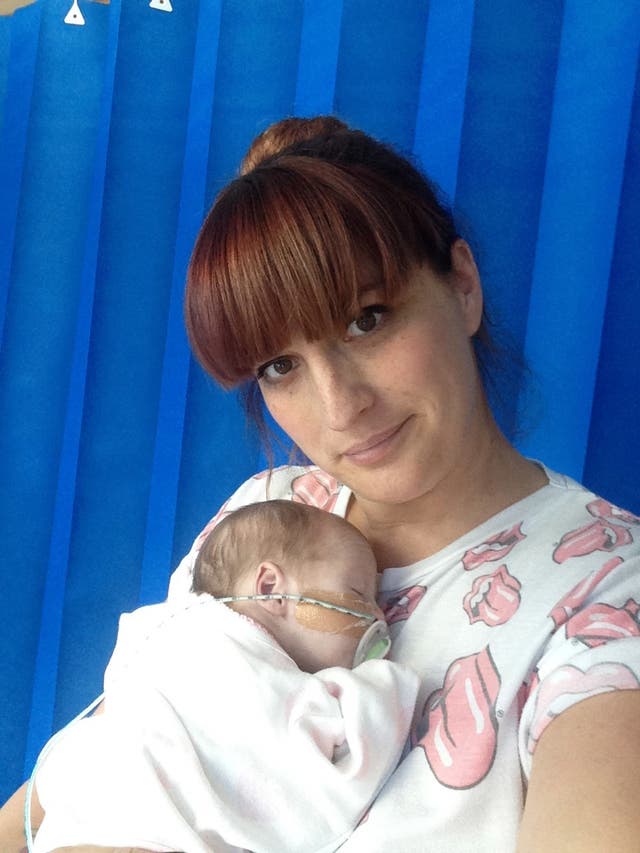Leading doctors who want all newborn babies to be screened for congenital heart defects are urging the public to share their views after a committee recommended the test should not be rolled out nationally.
Pulse oximetry is a simple, non-invasive test which measures oxygen in the blood to identify serious heart conditions and save newborns’ lives, said Andrew Ewer, Professor of Neonatal Medicine at the University of Birmingham.
Around 40% of UK maternity units are using it but the UK’s National Screening Committee has recommended it not be rolled out further because of concerns around harms including parental anxiety, overdiagnosis and false results.
The committee has launched a public consultation, until August 9, on whether the evidence it has considered is sufficient.

He and three fellow consultant neonatologists from around the UK have written a paper in The Lancet explaining why they think the committee has made the wrong recommendation.
Congenital heart disease is one of the most common types of birth defect, affecting up to eight in every 1,000 babies born in the UK.
The five-minute test involves attaching a probe to a baby’s hand and foot and connecting it to a handheld machine that measures oxygen levels by shining a light through the skin.
Birmingham Women’s Hospital, home to the largest foetal medicine unit outside of London, has been routinely screening babies with pulse oximetry since 2009.
Prof Ewer said there is “no doubt” it prevents deaths in babies from heart defects and that the potential harms “are not serious or common”.
He said: “Because you pick up low oxygen saturations, in addition to babies with heart defects we also identify babies with other problems that cause low saturations like breathing problems, infections, pneumonia and so on.
“So there is an additional benefit to that test, in as well as picking up heart problems, we can also pick up other serious problems from which they might become very unwell or die.”
He added: “And also it will prevent babies from becoming very, very unwell, not necessarily dying but needing tests or care in hospitals for days or even weeks which is something that could be avoided by early treatment.”

She and Lyla were sent home despite raising red flags that she had not moved much in the womb and did not seem to wake while feeding, only for a GP to discover she was in heart failure due to a narrowing aorta.
Recalling her experience three years ago, Mrs Parry, 39, told PA: “It was all very traumatic and probably didn’t have to be that way, I think, if she’d had the pulse oximetry test before she left hospital, because her’s would have been picked up because it gets worse as they are born. “
“It was down to pure luck that she survived this and it didn’t have to be that close, if it was picked up 10 days before, when we’d left hospital, she would have had the care, everything would have been like ‘OK this is happening but we’ve got time’ – so nothing so traumatic and close to the wire.
“Nobody needs to nearly lose their child. “
The Northampton mother said she did not feel let down during her pregnancy or when the condition was diagnosed, but added: “I feel let down at that point in the hospital when they let me leave with her, because there’s this one little test they can do.
“And it’s not their fault – it’s not standard that they need to do that, but if they had, I wouldn’t have left.”
Jon Arnold, chief executive of children’s heart charity Tiny Tickers, said: “We passionately believe pulse oximetry should become a mandatory part of newborn screening – meaning every baby is offered the test. But the NHS is recommending this doesn’t happen.
“That’s why we’re urging you to have your say. If you agree with us, the public consultation is your chance to tell the NHS how important you think it is that every newborn has a chance to have the test that could help save their life.”






